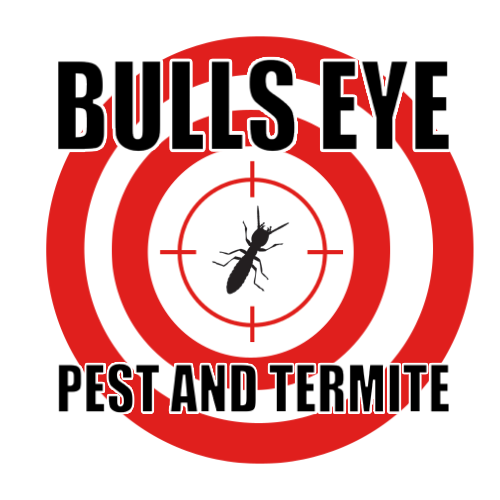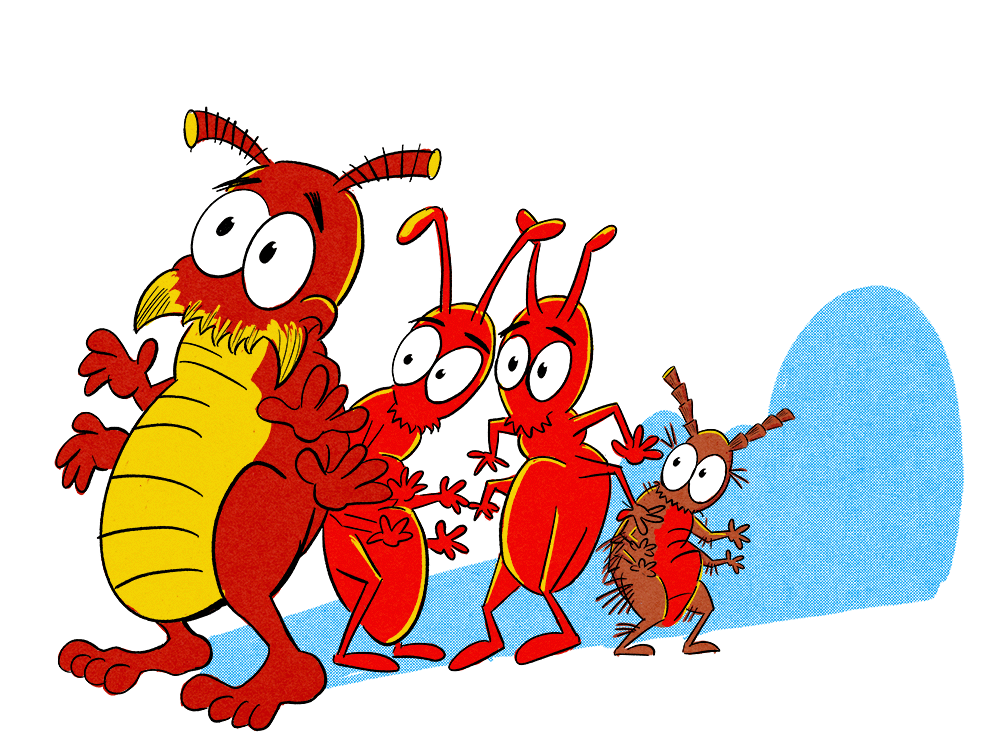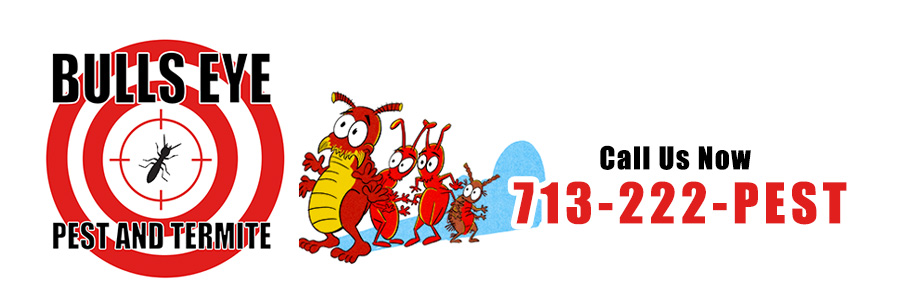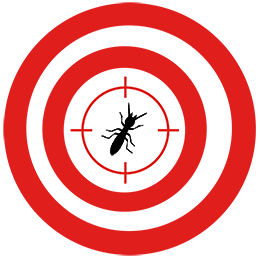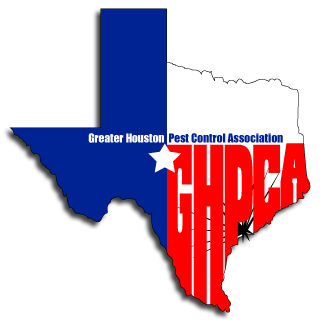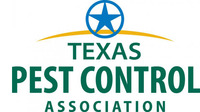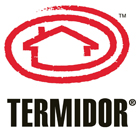Houston Pest Guide: Termites
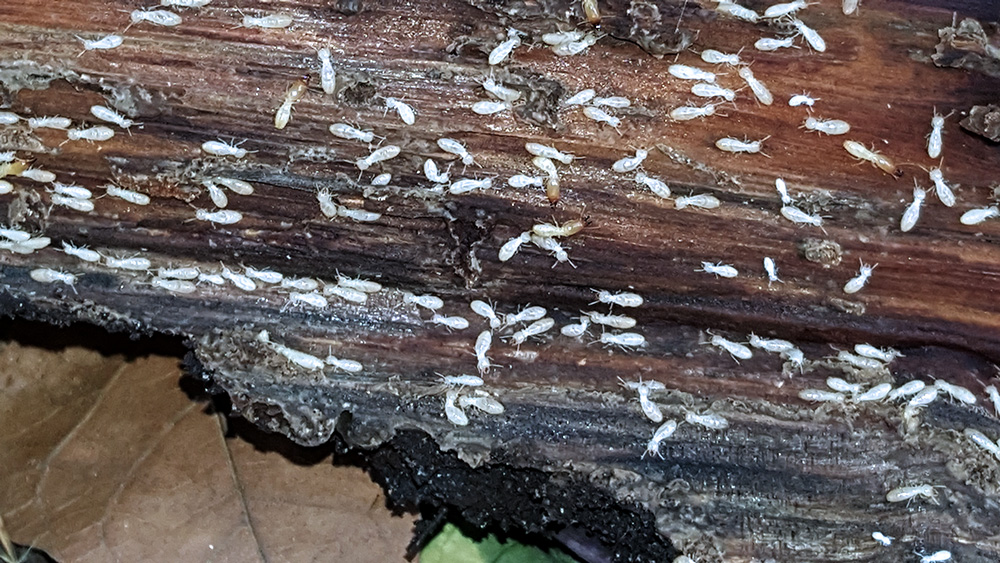
Termites are the most economically damaging insect found in Houston. A large termite infestation can easily do thousands of dollars worth of structural damage to a building. Having your home regularly inspected for termites and applying preventative termite treatments can be essential to protecting your investment in your property.
Termites are wood-eating insects that look like very large, dark, flying ants or like milky-white grubs with large brown jaws, depending on where the insects are in their life cycle. In Houston, Termites are most active in the early spring, when they emerge from below ground to sprout wings and swarm looking for a new place to nest. If you see large numbers of small, winged insects in your home in the spring or summer, or find piles of discarded wings in your home, call a termite control professional immediately.
Types of Termites in Houston
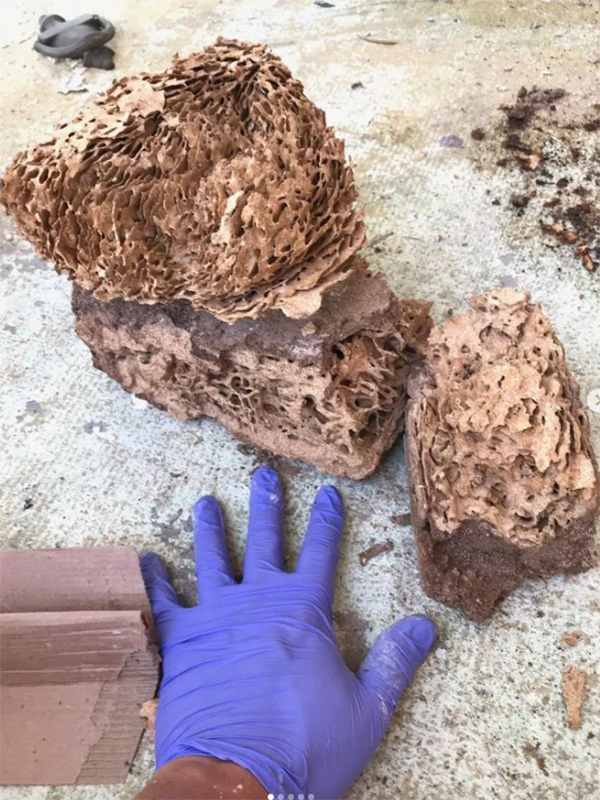
Formosan Subterranean Termites
Formosan termites are an extremely aggressive species of subterranean termite that was introduced to America in the 1950s. They have become well established in Houston and are responsible for billions of dollars of damage every year.
Their presence is usually detected by people seeing winged, swarming termites indoors or finding piles of discarded wings in the home. Other signs of a Formosan termite infestation include mud tubes in the basement or surrounding the home, or seeing wood damage.
Formosan termites will build their main nest underground and then expand that nest upwards into homes, often traveling through tubes they construct of mud. Once inside, they may build a secondary type of nest called a carton inside of wall cavities or other empty, sheltered spaces inside the home. This carton is composed of termite excrement, chewed wood, and soil and can almost resemble a wasps' nest molded to the shape of the void it was filling.
Formosan termites are prolific breeders, and their colonies can consist of millions of individuals. A single colony can extend for up to 300 feet below the ground.
Eastern Subterranean Termites
Eastern subterranean termites are extremely destructive and very common in Houston. As their name suggests, native subterranean termites are indigenous to Texas. These termites are extremely well-adapted to the area and thrive in Houston's humid climate.
Eastern subterranean termites are most noticeable in Houston in the early spring when they begin to swarm. People with a termite infestation will usually first notice when they see large numbers of flying black bugs inside their homes or finding large numbers of discarded termite wings.
Signs of Termites
Seeing Bugs Flying Around Your House
Termites swarm in early spring when, as part of their reproductive lifecycle, termites grow wings and a set off to found new colony. In Houston, the first signs of termite activity are usually seen in late February and into March, when the termite swarms are triggered by warm weather and rising humidity.
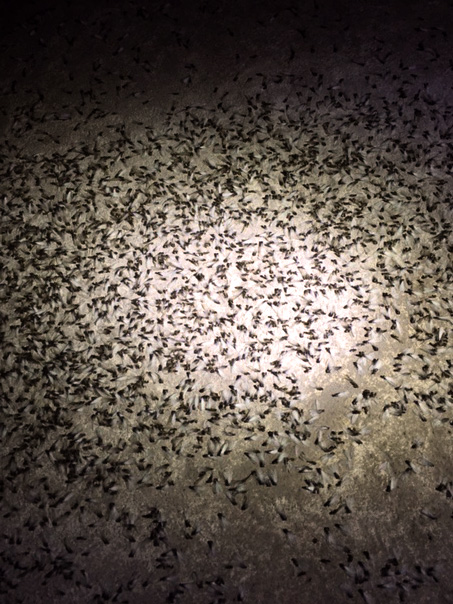
Discarded Wings
Shedding their wings after swarming is a natural part of the termite lifecycle. Termites shed their wings because they no longer need them, as they have built their underground nests and they will be spending most of the rest of their lives living beneath the earth.
The individuals in a termite colony will all shed their wings within a short timeframe, resulting in piles of discarded wings being left in a relatively small area. Each termite has four wings which can be perfectly transparent to a milky brown or black in color.
Without their wings, they are also less able to travel great distances, so finding a mass of discarded wings means that the the entrance to the subterranean termite nest is close by.
If you find large numbers of discarded insect wings in or near your home, along windowsills, near the foundation of your house or on your patio, it could be a sign that you’re playing host to a termite infestation.
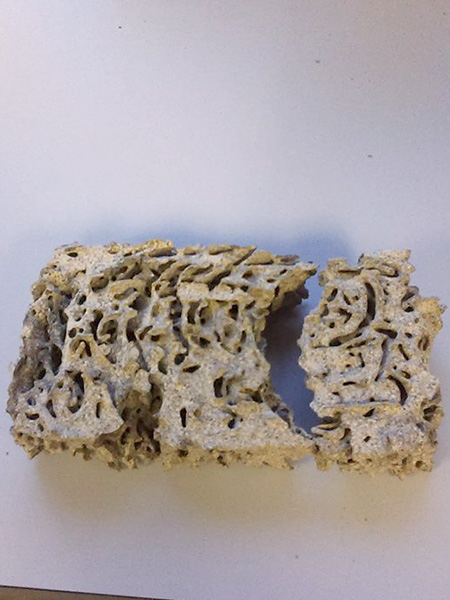
Wood Damage from Termites
Termites eat wood, which naturally causes significant damage to wood. As termites eat, they tunnel their way through the wood, leaving the wood pitted, softened, and crumbling. Termites can reduce wood to sawdust from the inside out. Wood with severe termite damage can even crumble at the touch.
In a significant infestation, wooden parts of a house may have visible holes on the surface of the wood, giving damaged wood a pitted and worm-eaten appearance.
However, because termites may work their way through wooden structures starting from beneath the surface, such holes may not always be visible when a home is infested.
Other signs of wood damage from termites may include sagging walls, floors, or ceilings. Discolored spots on wood, walls or drywall that look like water damage may also be signs of a termite infestation.
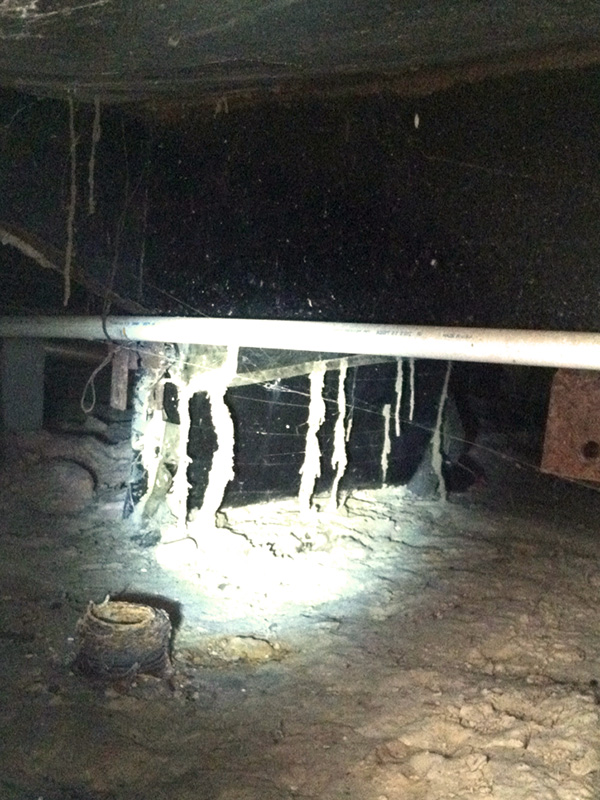
Mud Tubes
Subterranean termites build tubes out of earth and mud to connect underground nests to the open air and to give themselves access to food sources, and a protected way to travel back and forth between their nest and that food source. If you see discarded wings, wood damage, or other signs of termites inside your home, it's a good idea to check beneath your house to see if mud tubes are present.
Mud tubes can be found in basements, crawlspaces, and other areas where underground termite nests can build up to access the structure of the home.
Termite mud tubes look just like their name suggests, thin tubes of dried mud rising up from the earth to connect with other parts of the building.
Mud tubes may remain in place even after a termite colony has gone. Breaking these tubes open to see if there are any small, creamy-white worker termites within is one way of telling if the infestation is active.
Getting rid of Termites
Termites rarely enter your home through an open door or window. Instead, they come into the house through the structure itself, through passages which might not be visible to you. The ways that termites enter your home include:
Porches and Exterior Wood Structures
Porches and wood structures on the exterior of your home are one of the most common ways for termites to enter your home. Wood on porches is weakened when exposed to the elements. This weakened wood presents an attractive, easily-digestible meal to termites, who will progress through the porch wood and literally eat their way into your home.
Foundation Cracks
Termites crawling up from underground can work their way up through small cracks in the foundation which you might not even be aware of. Preventative treatments to your foundation are a good way to block this entrance for termites.
Plumbing and Drains
Loose seals around plumbing in drains are a common way for termites and a number of other pests to enter your home. Termites are also attracted to the moisture the accumulates around pipes. Making sure pipe seals are tight will help keep termites out of your home.
Preventing termites from ever entering your home is the best way to control termites. A pest control professional can offer you multiple options for termite prevention.
Call a Professional Termite Control Expert
An experienced pest control professional will be able to assist you with assessing places in your home that may be vulnerable to termites and recommend preventative treatment.
Termites are a major pest in Houston. If you already have termites in your home, professional termite control is the only way to solve the problem. Eliminating termite nests requires specialized equipment, chemicals that are regulated only to licensed professionals, and the knowledge and experience necessary to treat an infestation.
If you see signs of termites or want to take preventative action, contact us at 713-222-PEST (7378) and we'll be happy to come out and see you. Wherever you are in Houston, we can keep termites out of your home.Request a Quote
713-222-PEST (7378)
By submitting, you agree to receive occasional text messages or emails for appointment reminders and promotions from Bulls Eye Pest and Termite. To opt-out reply STOP at any time. Msg & Data rates may apply.
What Our Customers Are Saying
Thumbs up
David
Great job!
Nancy
Adam is the best tech! I wish he could come treat my house each time!
Daniel
Adam is always so kind and informative when he comes! Thank you!
Tori
